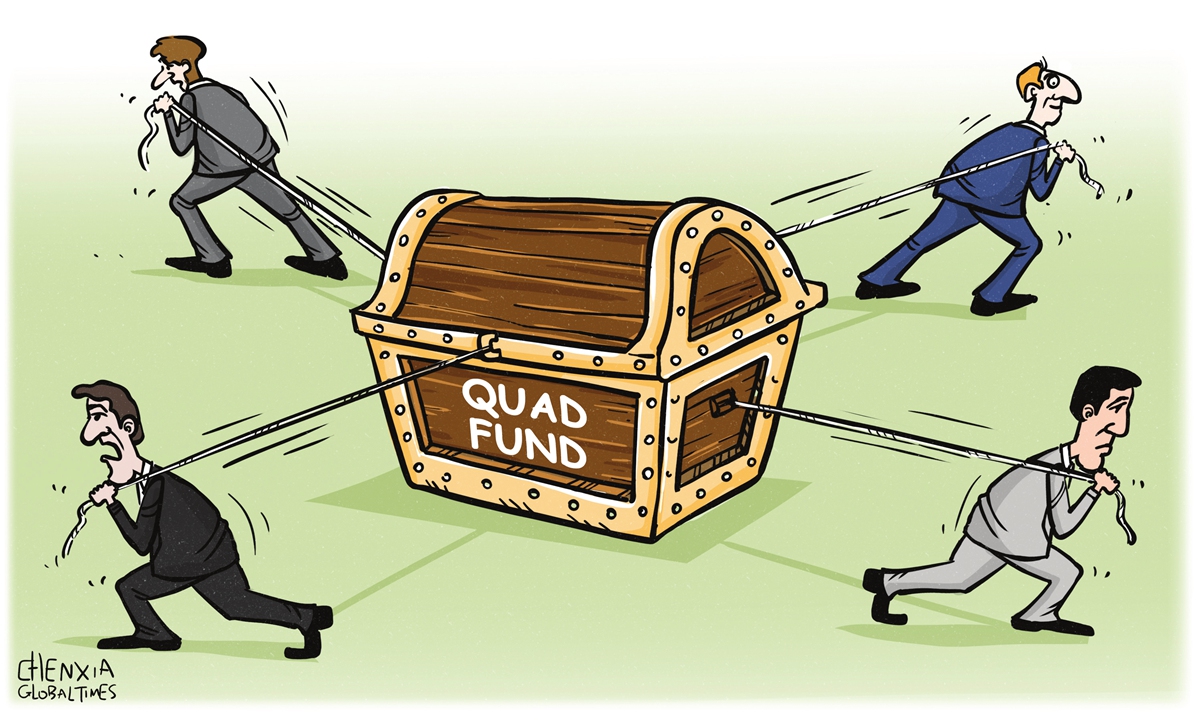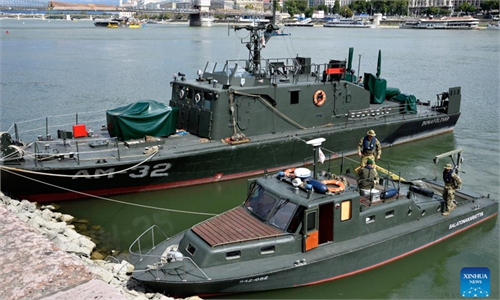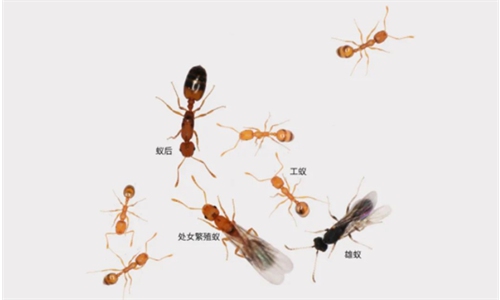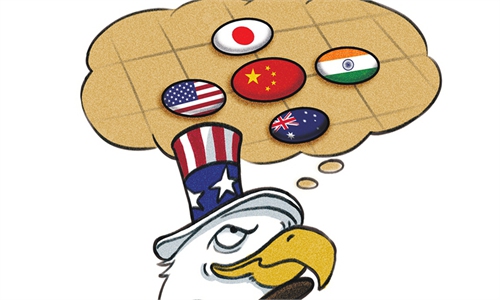Geopolitics-driven Quad fund reveals Washington’s strategic fear about losing its hegemony

Illustration: Chen Xia/GT
A group of Washington insiders is set to launch a fund to invest in companies from the Quadrilateral Security Dialogue (Quad) countries in a bid to suppress China's dominance in critical minerals, pharmaceuticals, military technologies, and supply chains, according to the Australian Financial Review on Wednesday.Washington, pulling three other allies, shows its evident stance of a multifaceted confrontation with China by such an aggressive move. Washington is now attempting to use the Quad investment fund to escalate containment of China, which shows that the US has entered a period of strategic fear from strategic anxiety.
Since the founding of the US, it has always overtaken other countries, and now it suddenly realizes that the US could be overtaken by other countries. China continues its path of peaceful development while the US is increasingly in chaos, making the gap of strength between China and the US smaller and smaller, which leads the US to feel strategic fear as it fears being surpassed by China.
To prevent emerging powers from challenging its hegemonic position, Washington has taken a series of countermeasures trying to trip up China. From chips to finance, various suppression measures targeting China have been introduced. It seems that these measures taken by the US to suppress China can be described as full of tricks, but in fact, this precisely reflects their increasingly lack of confidence. The US' extreme measures in containing China seem to break in full fury.
From the series of measures taken by Washington to comprehensively suppress China's high-tech to the establishment of the Quad investment fund, in the final analysis, they are all behaviors that distort the laws of the market against the background of political manipulation. The four countries are attempting to pull together a fund and put the goal of confronting China on the table. Isn't the political intent quite obvious enough? Although their various tactics appear to be aggressive, they will not sustain, not to mention success, because economic manipulation for political purposes cannot achieve success
After all, economic interests must be subordinated to the laws of the market. If their operations were in accordance with the laws of the market, then everyone would naturally benefit and be willing to participate. But if this fund is set up for the purpose of political suppression and uses the laws of politics to distort the laws of the market, then it will definitely suffer in the end. Such political manipulations that distort their own market laws will ultimately result in only one thing: shooting themselves in the foot. So now Australia seems to be actively echoing the US, but when it realizes they can't be successful, it will go from being positive to being inactive. As the law of the market is distorted by political means, it can only be thwarted by the law of the market.
Just as Europe is imposing multiple sanctions on Russia now, the energy price cap is actually a political operation to try and distort the law of supply and demand in the market. Therefore, before this round of sanctions has really come to fruition, Europe is now in chaos. As long as political manipulation is used to distort the law of development, it will only hurt the interests of different members. If such action continues, they will eventually get burned.
For countries in Indo-Pacific region, whether this fund can attract more and more participants still depends on whether it follows the laws of the market or whether it follows political operations to force the majority of countries in Indo-Pacific region to take sides. Now that the US is hyping this fund as a political mechanism, obviously there will be fewer and fewer participants.
Unless Washington changes its original intention and turns it into a real cooperation mechanism, it is impossible for other countries to take part in it.
The author is the senior research fellow at the China Institute of International Studies. opinion@globaltimes.com.cn



